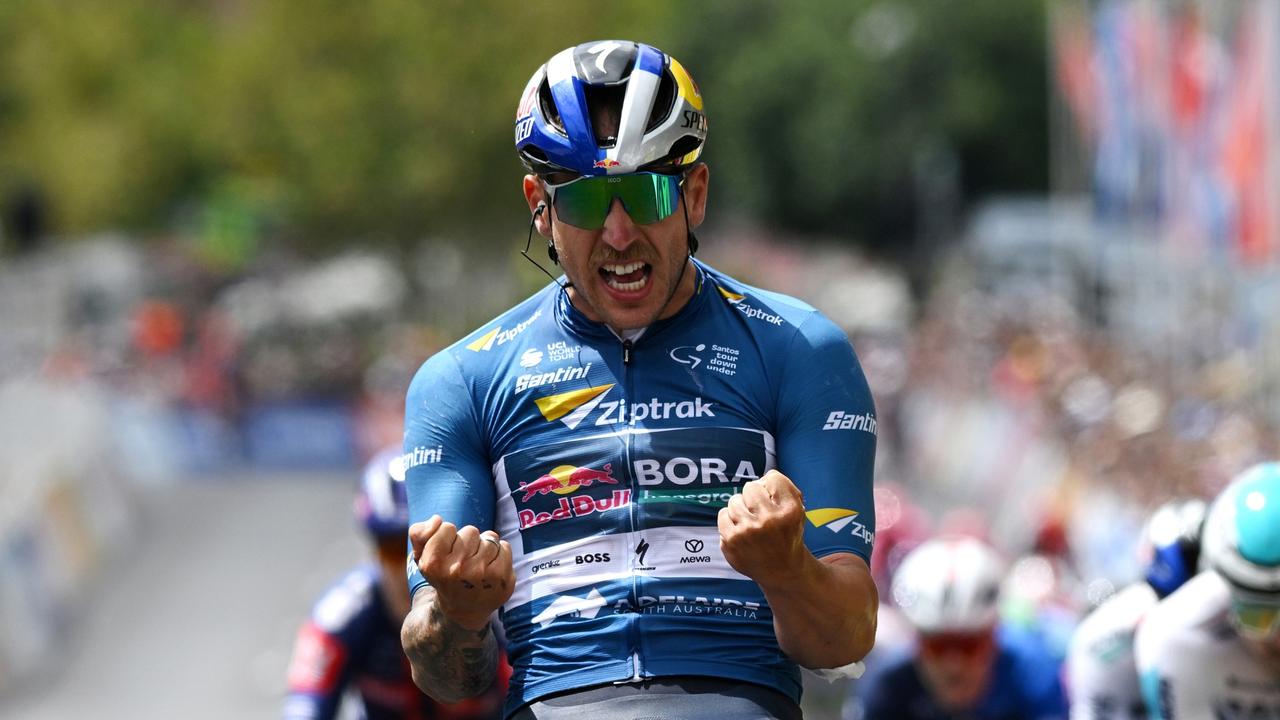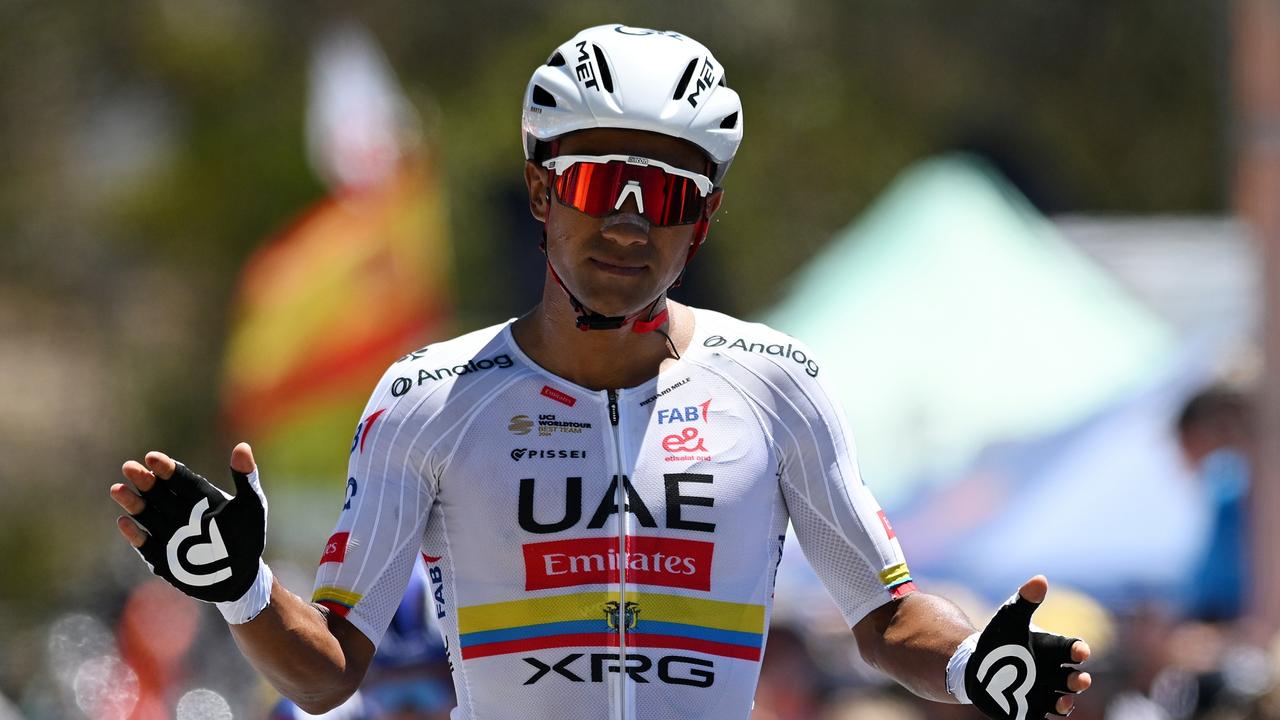'Assassin' Alps will decide Tour de France triumph
IT is 100 years since stages in the brutal mountain range were included in the race.
IN 1911, eight years after it all began, the Tour de France became a complete sporting challenge with the addition of stages in the giant Alps, a brutal chain of mountains that separates France from Italy.
With this final bold move, L'Auto, the newspaper that organised the race, had crystallised a complete challenge for the few men capable of riding around the Hexagon of France on a bicycle.
This weekend, La Grande Boucle will begin its journey on the west coast of France, saving the centennial visit to the Alps until the last week of the three-week journey. And it is there, without question, that the winner of the 98th edition will certainly reveal himself.
The race, which is arguably the greatest annual sporting event, has been halted only by the two World Wars, the first of which took the lives of the race's early heroes, Francois Faber, the winner in 1909, Lucien Petit-Breton (1907 and 1908) and Octave Lapize (1910).
Since 1911, the race has been steadily reduced from 5350km to this year's 3350km.
The field of 84 in 1911, of whom 28 finished, was made up of a motley crew of working men, strong in ambition but little else.
The 22 multi-million-dollar nine-man squads that launch into the race today in the Vendee region of western France are the slickest riders in the business, who have fought for selection all season and now realise the moment of truth. It marks a career-defining moment, even for a top professional cyclist.
But as they pedal up the west coast of France and across the north before plunging south to the Pyrenean mountains, their minds will stay focused on that last terrible week where, between July 19 and 22, the cries to the organisers of 100 years ago of "assassins" will be recalled once more.
The Col du Galibier stands 2645m high and was first conquered on July 10, 1911, by Emile Georget, who never walked once during the 33km climb. The overall lead went to Gustave Garrigou, who won in Paris nearly three weeks later.
On July 21 this year, the stage will finish atop the Galibier-Serre Chevalier, the giant of the Alps, making it the highest finishing line in Tour history, and whoever pulls on that night's mailliot jaune could well be the winner in Paris just three days later.
Alberto Contador, the defending champion, who rides under a doping cloud after testing positive for infinitesimal amounts of clenbuterol in last year's Tour, will again be the favourite.
The case of the three-time winner has dragged on interminably following appeals by WADA and the governing UCI against the Spanish Federation's decision to take no action against one of its biggest sporting icons.
The case should have been heard by the Court of Arbitration for Sport last month, but has been delayed until next month, making the result, should Contador win, in doubt until then.
If Contador is found to be guilty from last year, he will lose all races won since that time, which would once again turn the Tour de France into a European summer farce.
Can Cadel Evans become the first Australian to win the Tour de France?
I think he can and this year has to be the year for the Victorian from Barwon Heads. Last year he won the yellow jersey for a day and then fell slowly out of contention feeling, almost certainly, the pressure of being the world champion, while his body felt the pain of a difficult Giro d'Italia a month earlier, where he finish fifth.
Evans is now 34 and his American BMC team supports him after a season where he has performed better than hoped.
A win in two smaller stage races and a fourth second-place in June's Criterium du Dauphine, which is used by the Tour contenders as a final warm-up in the Alps, has left him feeling better prepared than ever.
Bernard Hinault, the last French winner in 1985, certainly believes in the Aussie.
"He's a solid rider and an intelligent one, so he can benefit from any duel between Contador and Andy Schleck," says Hinault.
Schleck, the runner-up who thinks he lost the Tour last year when he slipped a chain at a crucial moment in the Alps, is not showing top form as the race approaches, yet he firmly believes he can beat the Spaniard.
"I am glad he is riding so I can beat him," said Schleck, when asked if he thought the Spaniard should stay at home until his doping charge was cleared up one way or the other.
And there are others who can win, such as the Americans Levi Leipheimer, recent winner of the Tour of Switzerland, and Chris Horner, winner of the Tour of California or, indeed, the unpredictable Bradley Wiggins, who became the first Englishman to win the Criterium du Dauphine since Brian Robinson 50 years ago, last month.
Wiggins has since become the British champion and the triple Olympic gold medallist on the track is ready for his toughest race to a podium place in Paris.
There will be no Robbie McEwen, the winner of 12 stages during his 12 Tours. The Queenslander is now 39 and has struggled this year.
However, as one door closes others open and Tasmania has two first-timers in Matthew Goss and Richie Porte, both of whom will distinguish themselves. It is 97 years since Snowy Munro and Don Kirkham pioneered the Aussies at the Tour, just weeks before World War I broke out.
Porte and Goss enter as the 43rd and 44th Australians to compete and this year the one prize the nation has never won, the final maillot jaune, is within its sights. Let the race begin!


